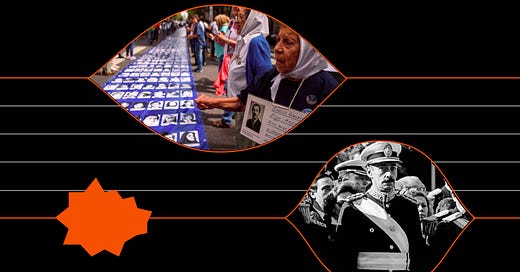What the Dirty War tells us about Argentinian politics today
… plus curiosities from Columbia University’s frontlines, Angola, and more.
Welcome back to another edition of The Detour. Right now, we are a free weekly newsletter. But if you have loved reading The Detour as much as we have loved writing it for you, consider supporting our work by pledging a weekly or monthly subscription using the button below.
By doing so, you will help ensure that our team of independent journalists can k…
Keep reading with a 7-day free trial
Subscribe to The Detour by Kelly Kimball to keep reading this post and get 7 days of free access to the full post archives.



